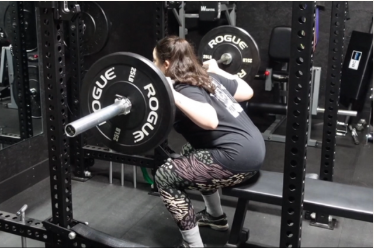April Fools has come and gone but many people are still being fooled by common fitness misconceptions. Here is a list of fitness MYTHs that should no longer be perpetuated in the realm of resistance training:
1) Resistance training is dangerous. (NOT working out is more dangerous to your body.)
2) Resistance training will make you stiff, slow, and harm your sports performance. (RT can actually increase flexibility and increase speed, power, and reaction time.)
3) Functional training is better than traditional resistance training. (There are many ways to train that are beneficial, but our bodies need strong muscle for increased quality of life.)
4) Resistance training stunts growth. (This has been proven false in multiple studies, it is safe for kids to life weight with PROPER FORM.)
5) Elders shouldn’t participate in resistance training. (It is true we lose more muscle as we age but that is no reason to give up on lifting weights. This can also prevent injury risk like falling in our older age It’s never too late to start!)
6) Resistance training will wear and tear your tissues. (Everything in moderation, more is not always the answer, rest and recovery are KEY.)
7) Muscle gain is not functional. (FALSE. Muscle = strength = power. To be functional is to be strong.)
8) Resistance training is the enemy of plyometrics and rate of force development. (FALSE, strength gains can increase force development which makes you faster and more explosive!!)
9) Resistance training worsens cardio/endurance capabilities. (Not true, your heart is also a muscle that greatly benefits during weightlifting. Will you be a powerlifter AND ultra marathon runner? No. But you most definitely can run and lift with a proper plan in place.)
10) Resistance training won’t influence injury risk. (The stronger you are, the less likely you are to be injured and if you DO get injured, your recovery prognosis is MUCH more positive.)
11) The more reps you do, the more you will “tone” the muscle. (Gaining muscle to achieve tone can be accomplished through a variety of set, rep, and weight ranges… not just low/moderate weight and high reps.)
12) Resistance training only effects muscle tissue. (RT is also beneficial for your cardiovascular health and your mental health.)
13) Resistance training is dangerous for pregnant women. (Always consult with your doctor and work with a trainer who is experienced with training pregnant populations, but it is safe and encouraged to resistance train for the health of your baby and yourself. The exercise selection and intensity just may look different than pre-pregnancy-- especially if you are new to lifting during your pregnancy.)
14) Resistance training transforms fat into muscle. (Muscle and fat are two different things. Your muscle can either grow or shrink, fat can never be turned into muscle and vice versa.)
15) Resistance training won’t work after a certain age. (False- tell this to my 95-year-old client and he’ll tell you otherwise.)
16) Resistance training makes women look “manly.” (Lifting weight makes women look like strong badass WOMEN. Strength and muscle belong to everyone, not just men…)
17) Deadlifts hurt your back. (Deadlifts can make your back sore like with any other muscle group. This exercise can help to actually reduce back pain by making you STRONGER. Correct form is important, but you are not easily “breakable” or fragile!)
18) Your knees should never go past your toes in a squat. (It is natural for your knees to go past your toes in a squat, try squatting without it, it’s impossible and you will look silly and fall over. Just make sure the knees stay on the same RAILROAD track as the toes. Knees should not cave in excessively during a squat or lunge.)
19) You have to work out 7 days a week to see results. (Working out 1 day a week as been proven to be effective. Something is better than nothing! 7 days a week does not allow enough time for your body to rest, especially if your workouts are high in intensity. I recommend 2-5 days/week to be the sweet spot.)
20) More is always better. (It’s not, better is better. Ever heard of the phrase “Junk Volume” ? It’s a real thing. Exhausting the body is not the goal. The goal is to get stronger and create more adaptations with progressive overload, over TIME! That is what sustainable fitness looks like.)
21) You shouldn’t eat after 8pm. (FALSE- calories do not have a clock, they can’t tell time. Eat nutritious food after 8pm if want, just not mindless snacking on processed, high sugar, high fat foods like cookies or chips. Try vanilla Greek yogurt with some fruit, granola, or chocolate chips. It’s sweet, satiating, AND promotes recovery while you fast in your sleep!)


